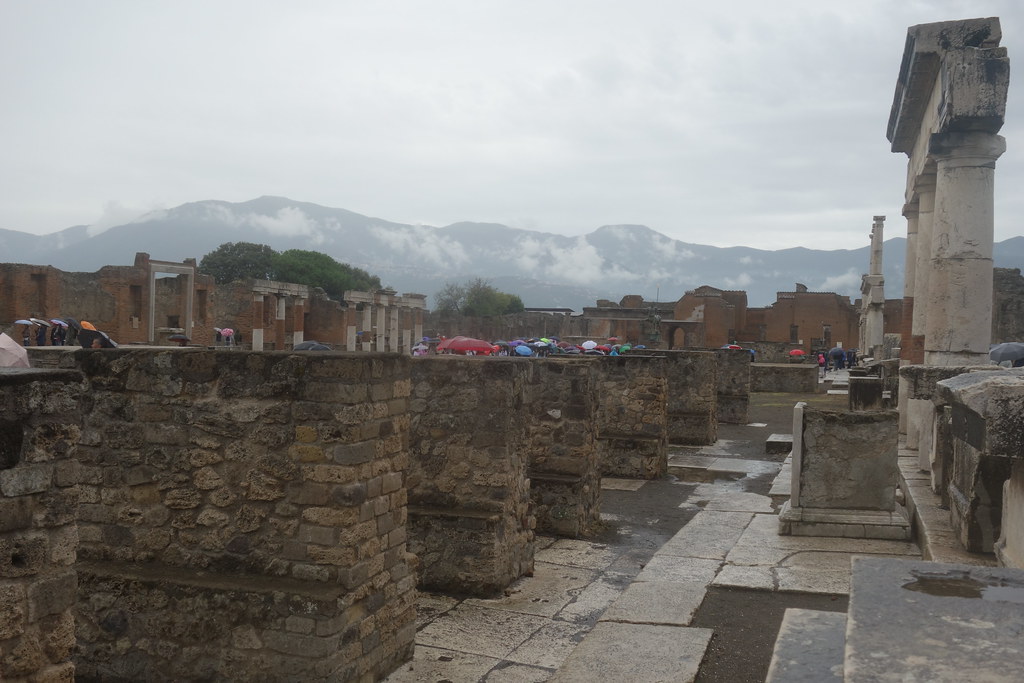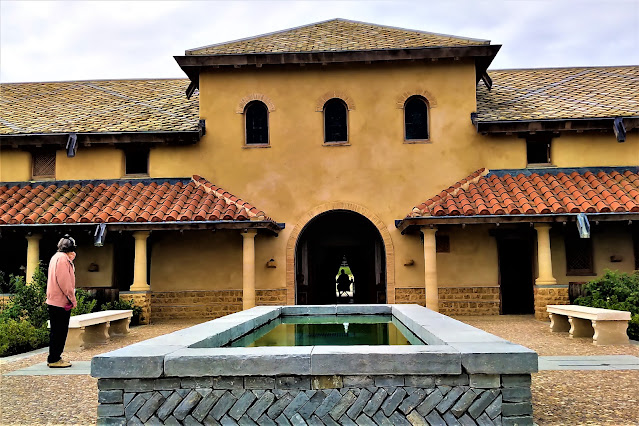Pompeii
Pompeii, a Roman city from the 1st century AD, has achieved fame
worldwide as a consequence of being buried under layers of lava
pebbles, three types of pumice, and various types of ash in all
about 4m/12 ft in depth due to a massive explosion of nearby Mount Vesuvius at around midday on or about October 24th., AD79. This entombed
about 2000 people in the city, more in the nearby town of Herculaneum, with countless thousands of others dying
in the surrounding countryside. This was the most catastrophic natural
disaster ever recorded in European history.
After the explosion, the town was forgotten until rediscovered in the
18th century. In 1860 the Italian government appointed a professional
archaeologist to oversee excavations which are still in process today.
To sum up the horrific deaths to thousands of the city's occupants
caused by searing heat and suffocation is offset by the unique window
this event has provided into a snapshot in time of a provincial city
during the 'golden era' of the Roman Empire.
This World Heritage Site is located in the Campania region of southern Italy, near the coast of the Bay of Naples.
Below is a portfolio of images taken in course of a one day, escorted tour of the site.
Amphitheatre: Built on outskirts of Pompeii in 80 BC.
Forum
Antiquarium: Repository of artefacts found during excavations.Note cast of body killed in the explosion.
Water fountain in Via dell'Abbondanza, Pompeii's main thoroughfare.
Bakery
Toilet
Street scene
Erotic image to welcome clients to the lupanarae or 'house of pleasure'.
Narrow street
Fast food (or street food) outlet.
Heavily worn street surface
Street scene
House of Epidio Rufo with columns featuring Corinthian capitals at entrance set around centre of implurium basin.Mosaic floorThe Forum:The Basilica

















Comments
Post a Comment